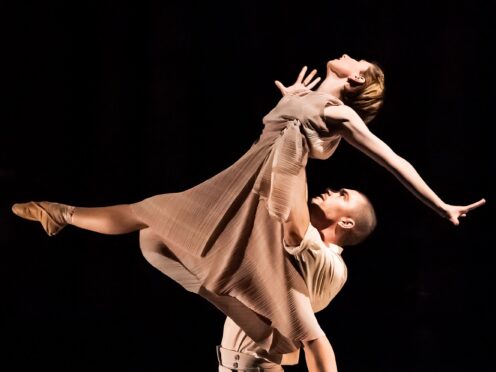The British public are overwhelmingly in favour of having “priceless” subtitles and captions to make the arts more accessible for deaf people, according to research.
Just 1% of live performances were captioned before the national lockdown, with fears that millions of people in the UK suffering deafness or hearing loss were excluded from plays, musicals and exhibitions.
However, the rise of captioned live performances during lockdown has caused a shift in public opinion, with 77% of the public in favour of venues offering more captioned performances, according to research from the charity Stagetext.
Almost a quarter of the public are calling for it to be a legal requirement for venues to have captions or subtitles, acting as a “lifeline”, according to the survey.
This followed the emotional dance routine from actress Rose Ayling-Ellis, who dedicated her performance to the deaf community on Strictly Come Dancing.
During the middle of the performance, the music was paused as Ayling-Ellis and her professional dance partner Giovanni Pernice continued to dance in silence as a tribute to the deaf community.
The research from Stagetext, a charity that provides captioning and live subtitling services, showed that public opinion has shifted, with nearly half of the public claiming that the number of captioned events was “not enough”.
If more captioning was offered by live venues, a third of the public would be more likely to increase their attendance at live shows, the data suggested.
According to the poll, there was also a hidden community of people in the UK that relied on subtitles and captions, with 67% claiming that they sometimes find it difficult to hear what is happening when watching TV or live performances.
Melanie Shape, chief executive of Stagetext, said: “These figures prove the demand for captions and that for millions of people, they are a lifeline. Every one of us knows someone who has the TV on that little bit too loud and would benefit from turning on the subtitles.
“At a live event you can’t adjust the volume, and the stress of not following a plot, muffled dialogue and off-stage distraction can put people off attending amazing performances. Having captions at live events ensures the whole family can enjoy a live performance.”
The results of the poll come as the country marks Captioning Awareness Week, a campaign which will see theatres, museums and galleries hold captioned and live subtitled events throughout November.
GCSE drama student Daniel Jillings, 15, who is deaf, said: “Because of captions, I could enjoy lots of the theatre shows that were streamed online during lockdown. Deaf people like me need captions to access live shows in theatres, so we can understand what is happening on stage.”
BBC presenter Lewis Vaughan Jones said: “When I suddenly lost so much of my hearing, I thought many live events and performances would be inaccessible to me. I thought I’d have to say goodbye to a huge part of my life. But the brilliant work of Stagetext keeps that world open, its value is priceless.”
